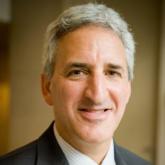
Wealth inequality is often discussed in terms of its economic effects rather than its political implications. But money is a form of power, and the wealthy exert an outsized influence on politics. Wealth taxation has the potential, therefore, not only to reduce the concentration of economic power in America, but to strengthen democracy itself.
On Monday, May 2, the Urban-Brookings Tax Policy Center will host an event considering wealth taxation as a tool of democratic reform. Jeremy Bearer-Friend, associate professor of law at George Washington University Law School, and Vanessa Williamson, senior fellow in Governance Studies at the Brookings Institution, will present their new paper, exploring and updating an underappreciated wealth tax proposal made by the American revolutionary, Thomas Paine, in his 1792 book, “Rights of Man.” Phyllis Taite, professor of law at Oklahoma City University School of Law, will address the potential effects of wealth taxation on the racial wealth gap, and Rakeen Mabud, chief economist at the Groundwork Collaborative, will discuss how taxation fits into a broader reconsideration of economic policy’s political and social purposes.
Speakers:
- Jeremy Bearer-Friend, Associate Professor of Law, George Washington University Law School
- William G. Gale, Co-Director, Urban-Brookings Tax Policy Center
- Rakeen Mabud, Chief Economist and Managing Director of Policy and Research, Groundwork Collaborative
- Phyllis Taite, Professor of Law, Oklahoma City University School of Law
- Vanessa Williamson, Senior Fellow, Urban-Brookings Tax Policy Center
Viewers can submit questions for panelists by emailing events@brookings.edu or via Twitter with #WealthTax.


